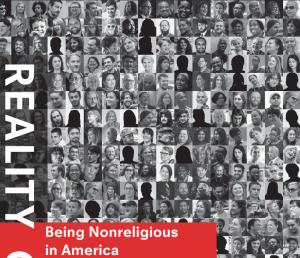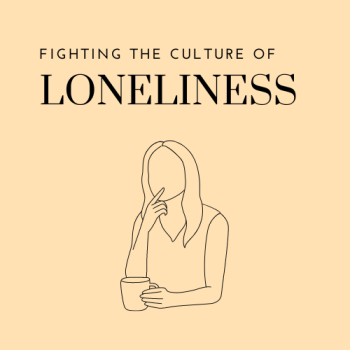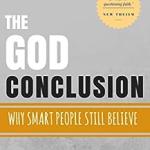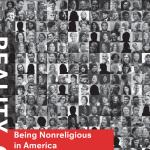In 2020, the American Atheist Society [AAS] released the results of an online survey they had conducted regarding discrimination against atheists. The results were posted on the organization’s website as an article, breaking the numbers down to percentages presented in various graphs and population maps. The resulting article boiled down to two essential points: atheists are widely persecuted, and their interests are underrepresented in the public forum. The article states:
“…it is our goal to use the data acquired through the U.S. Secular Survey, the very voice and power of the nonreligious community, to ensure the future of the Secular Movement and to allow us to fight for religious equality, the separation of religion and government, and the civil rights of nonreligious people for decades to come.”
The American Atheist Society make no secret of the political ends to which they hope to attain with their research. Says the article:
“At both the national and local level, Secular Movement organizations seek to engage nonreligious people to organize strong nonreligious communities and to build political power.
“Successful advocacy for any policy or population requires the use of data to inform policymakers and stakeholders and to demonstrate the need for the policy change. Too often, however, well-meaning advocates use data in ways that are misleading or that unintentionally harm, rather than support, advocacy efforts. Therefore, we hope to provide some guidance to advocates seeking to use the statistics and data in this report to support their efforts.
The survey was widely advertised online before it was finally opened, and it received an impressive 34,000 participants.
Despite the large sampling size, holding the survey as a voluntary poll on a website had its down sides. The participants could not be rigorously screened, and consequently would have to be relied upon for accurate self-reporting. Not having the kind of funding to pull off a more statistically rigorous study, the American Atheist Society had to stick with what they were able to accomplish with a website and a large online presence.
But the study did not hide the ball on its limitations. It says, “To be clear, this isn’t a survey about all atheists in America. You’d need a lot of money to pull that off. This is a self-selected group of people, the kind who are willing to take this sort of survey online.”
The individuals in the study were largely represented in states in the so-called “Bible Belt,” and in the highly Mormon state of Utah. The bulk of the participants came from religious homes, and after becoming non-religious, either felt the need to hide their non-religious leanings, or felt a loss of family and community upon revealing their new identity.
This is relatively consistent in the research, that upon “leaving the faith,” individuals experience a loss of community which results in feelings of isolation.
Further, the article stressed the sense of marginalization felt by atheists in a largely Christian nation.
While the nation’s Christian majorities tend to be regional (as the survey itself shows), the sense of marginalization in these areas isn’t inconsistent with the data. In their 2017 study, Kate, de Koster, & van der Waal show that religious communities tend to indicate significantly lower life satisfaction when they are under represented in a community.
And this same trend is represented in the data from the American Atheist Society.
The AAS argue that their survey indicates a level of persecution under which atheists suffer. This impression could be attributable to a number of factors.
The first is what has already been stated above. When one moves out of one’s current community – in this case, exiting a religious community – one tends to experience a significant decrease in life-satisfaction until one is able to find a new community. And the AAS find the same:
“We also found that involvement with Secular Movement organizations was a protective factor that correlated with reduced loneliness and likely depression.”
Another factor that might result in the feelings of persecution was the very broad definition the survey used for persecution, notably, microaggression. The report defines microaggression as “brief and commonplace daily verbal, behavioral, and environmental indignities, whether intentional or unintentional, that communicate hostile, derogatory, or negative racial [or other] slights and insults to the target person or group.”
For the participants, this could include things like being told “God bless you,” when they sneeze, being present when someone “said grace” over a meal, or being exposed to religious icons in a public space.
Said the paper: “In the year prior to taking the survey, nearly two thirds of all survey participants were sometimes, frequently, or almost always asked to join in thanking God in a fortunate event.”
While the survey used a previously developed scale, called the Measure of Atheist Discrimination Experience, it added the option of reporting distress over seeing religious symbols or texts in public places. About a quarter of participants reported that such public displays were bothering.
But a significant area in which the persecution was felt was in the online arena, where atheists considered themselves to be bullied, derided, and otherwise abused in some way.
Beyond these items, the survey devoted a large section to political issues. Said the article:
“While survey participants expressed strong interest in all these policy issues, overwhelming concern was expressed for maintaining secular public schools (91.6%) and about the denial of health care based on religious beliefs (88.0%). More than four fifths of all survey participants expressed strong support for access to abortion and contraception (86.3%), for opposing religious exemptions that allow for discrimination (86.2%), for comprehensive and medically accurate sex education (85.5%), for protecting the environment and addressing climate change (84.8%), for protecting youth from religion-based harm (84.7%), for opposing inappropriate political activity by churches (82.9%), and for LGBTQ equality (81.6%). Opposing religious displays on public property (53.6%) was least likely to be rated as an important policy priority.”
The bottom line of the paper was a call to advocacy against religion and its wielding of political power. Says the paper:
“Some of these states have passed laws to promote false Christian nationalist narratives, allow religious exemptions to civil rights protections, and enshrine particular religious views into the law.”
The paper openly states that it hopes these data will motivate their base – a base whose political interests are as strong as their motivation to political participation. Says the paper:
“We vote. “Nones” [referring to individuals with no participation in or stance on religion] don’t always vote, but atheists definitely vote.”
This claim is supported by a 2020 study by Ryan P. Burge in which he shows that atheists are, in fact, the most politically active group in America.
Ultimately the paper is confessedly less than academically rigorous – albeit with an impressive sample size – and also confessedly driven by a political agenda.
Yes, individuals who leave their religious communities do, in fact, suffer various mental health issues until they can find a replacement community. This has less to do with the evils of religion, and more to do with the human need for community.
Yes, any community which is under-represented in a population has a lower sense of life-satisfaction.
Yes, in highly religious areas such as Utah and the Bible Belt, the saying of prayers in public and the presence of religious iconography is plentiful, such that microaggressions are ever-present.
Yes, the internet is a place where bullies of every stripe abound.
And given the heightened political activism and participation of atheists, one would expect them to be motivated to push religion as far out of the political sphere as possible.
Does all of this amount to persecution? This, one supposes, is in the eye of the beholder. As the article itself points out, Christians also believe themselves to be widely persecuted.


















